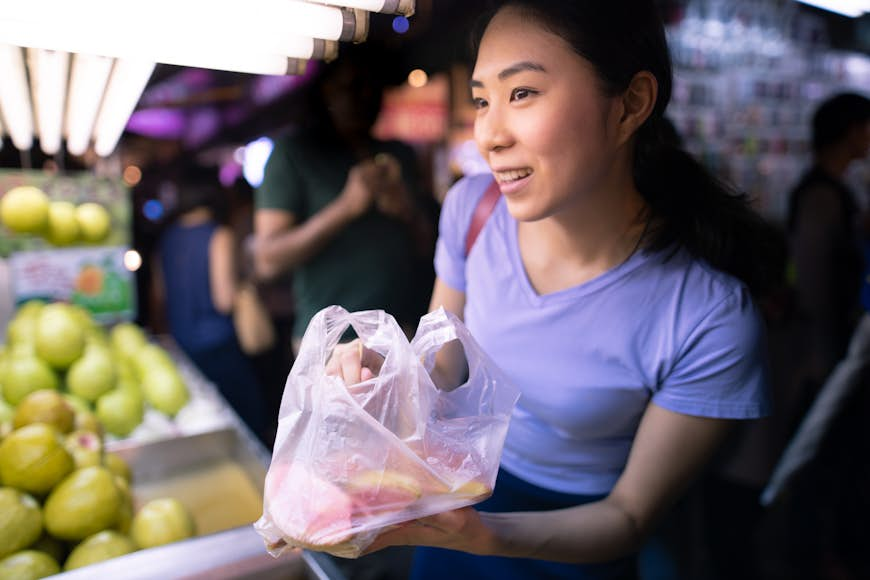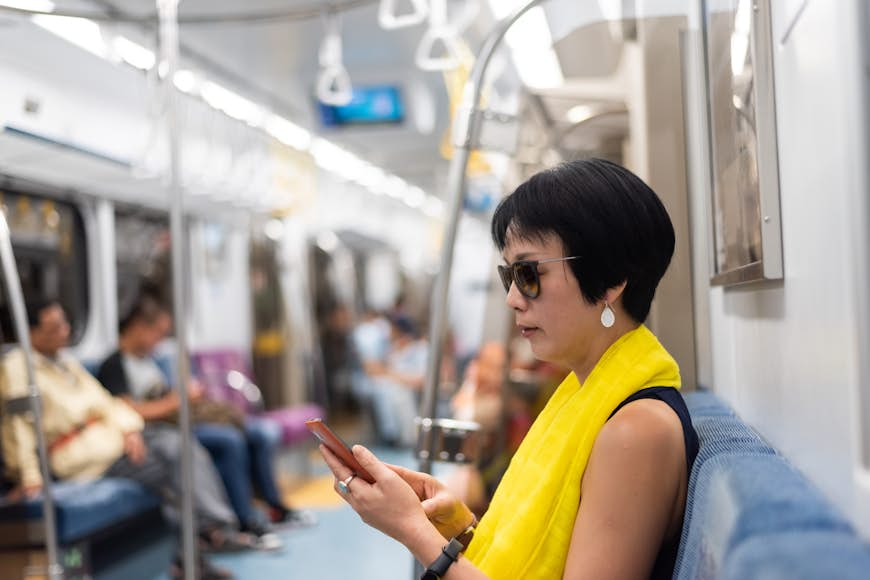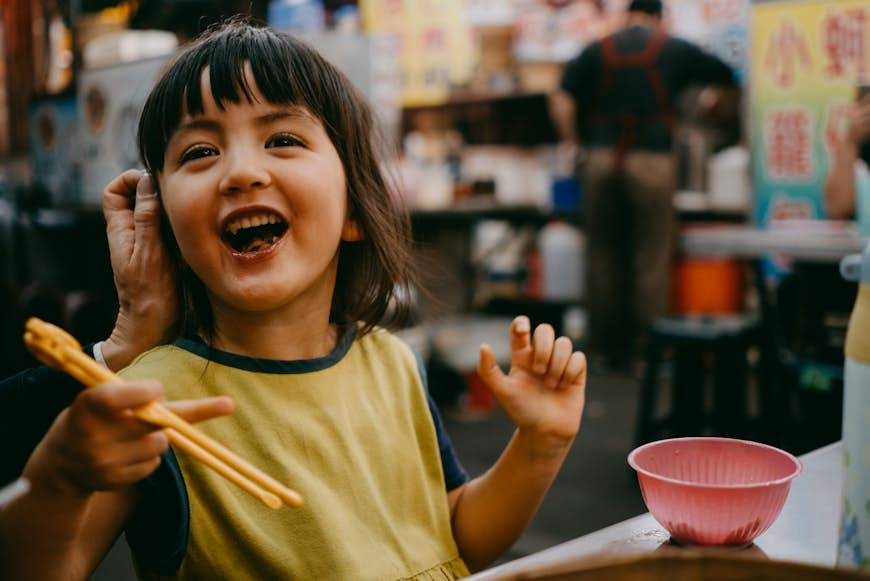Taiwanese tradition is an intriguing tangle of conventional Chinese language customs and Japanese sensibilities, permeated with island-wide free 4G and an insatiable industrial drive.
The epitome of all issues Taiwan is its capital Taipei, a metropolis so secure that you just’d be clever to fret extra concerning the climate than your pockets. Whilst you might go away your laptop computer unattended in a restaurant and count on it to be there once you return, the identical might not be stated of your umbrella.
Learn on for a crash course in additional of the capital’s quirks (instance: sporting flip-flops in a rainstorm actually is the wisest alternative). Right here’s all you’ll want to know earlier than your journey to Taipei.
Study some very primary Mandarin
Fortunately for non-native audio system, the communication model of the Taiwanese could be very simple. The phrase “please” is a rarity when shopping for issues, swapped as an alternative for a well mannered bow and a thank-you after receiving your order.
If you happen to can handle a easy “hiya” (pīnyīn: nǐ hǎo) and “thanks” (xièxie), alongside along with your order of bubble tea (yī bēi nǎi chá), you would possibly even obtain a praise in your impeccable Chinese language from kindly distributors.
Usually, Taiwanese locals will probably be very happy to observe their high-school English abilities with you. Nonetheless, making the hassle to converse in Mandarin is an effective way to degree the enjoying area.
Pack flip-flops for the plum rain
When it rains in Taipei, it pours. And in summer time it rains so much. Every year, town is blessed with 98in (2500mm) of rainfall, seeing the best precipitation within the hottest months from June to September – often known as monsoon or “plum rain” season.
To save lots of your greatest sneakers from saturation, put on flip-flops on wet days (avoiding tiled surfaces) and embrace a raincoat and umbrella in your packing record. The rain often gained’t flip up till late afternoon, so it’s additionally a good suggestion to start out your day fairly early (between 6am and 8am), when the climate is cooler and the sky brighter.
Keep in mind to provide and obtain with two fingers
This primarily applies to monetary transactions, however it may well additionally prolong to reward giving and even passing your passport over at immigration. Giving and receiving with two fingers is an indication of respect, even when it means placing your buying down to take action.
Comply with a Taipei foodie earlier than you arrive
Past the Michelin-acclaimed Din Tai Fung and the marginally too touristy Shilin Evening Market, Taipei has a mouthwatering meals scene. Uncover what’s new, well-liked and off the crushed monitor by town’s community of native bloggers (we love Hungry in Taipei and Taipei Foodie) and on social media.
One good shortcut for locating good native spots is to look on Instagram for the realm you need (eg Ximen; 西門) adopted by the phrase “lovely meals” (美食). It will current all of the lately hashtagged gems in your drooling perusal.
Scorching-step it to a 7-Eleven for an EasyCard and a tea egg
The mom of all comfort shops in Taiwan, 7-Eleven sells all of the acquainted snacks, meals and drinks you get within the West – with such added Asian lunch additions as onigiri and tea-stained eggs.
However greater than that, 7-Eleven can be the place to go for getting (and topping up) your MRT EasyCard, printing paperwork, sending packages and withdrawing money. The swankiest places even have loos, free wi-fi and tables with charging docks.
A phrase of warning: comfort shops can rapidly turn into a cushty alternative, however this can value you by way of essentially the most genuine meals and native interactions. So go to sparingly.
Don’t go away a tip
As in Japanese tradition, tipping will not be customary in Taiwan – in some instances, it might even be thought of an insult. As Taiwan westernizes, it has turn into barely extra frequent to tip, significantly in worldwide inns and bars. Typically, although, it’s not anticipated.

Strive to not get defensive
Is Taipei tourist-friendly? Sure. However the Taiwanese could be shy.
The approachability of Taiwanese folks lies on the coronary heart of the island’s allure. Locals are usually curious when recognizing a foreigner, so chances are you’ll expertise a couple of stares. Nonetheless, you’ll be able to count on a shy smile beneath. If you happen to catch somebody staring quietly, attempt smiling or hanging up a dialog; chances are you’ll make a brand new buddy.
Respect Mom Nature
A number of the strongest tropical cyclones on the earth go over Taipei within the late summer time, ripping store indicators from buildings and making mailboxes all wonky. Maintain an eye fixed out for any alerts from the Central Weather Bureau, going outdoors just for necessities when a storm is incoming.
Earthquakes are additionally extraordinarily frequent in Taipei (although the epicenter tends to lie additional south). Once you really feel the bottom shake and your cellphone shriek in alarm, don’t panic. A “Presidential Alert” is distributed as a warning, recommending folks go outdoors whereas the Earth does its factor.
Purchase bottled water
Most locals drink bottled water within the steamy warmth. A sustainable various is to refill your bottle at water stations throughout town, utilizing the Feng Cha App to assist find them (奉茶行動).
Ingesting tradition can be consuming tradition
Low-cost and cheerful with an unabashed quantity of booze, a re chao (熱炒) is the equal of a Japanese izakaya (or English pub). Re chao (that means “quick fry”) serve up glorious wok-fried dishes at round 100NTD apiece, alongside Taiwan Beer and limitless rice. Browse the tanks of stay fish, lobster and different shellfish to see what’s contemporary.
Not like at bars within the West, Taiwan’s consuming tradition is concentrated across the dinner desk, that means re chao eating places typically get extra raucous than the bars. These on the lookout for the bar and membership scene can attempt the rooftop institutions in Xinyi district after dinner.

What is taken into account impolite? Discourtesy to others on public transport
Taipei’s metro service (MRT) is all smooth traces and clear plastic seats, polished to a excessive shine. So as to hold it that approach, gum, foods and drinks (together with even water) is banned on public transport.
Since undue noise can be frowned upon on the MRT, not often will you hear a dialog going above a low murmur. Chorus from loud conversations except you wish to obtain some laborious stares.
One other fake pas on the MRT is to sit down within the dark-blue precedence seats. These seats are reserved for these in want, together with the aged, pregnant and folks with disabilities – a norm refreshingly maintained by native straphangers.
Greet Taiwanese with head dips, not handshakes
Do Taiwanese shake fingers? The quick reply isn’t any.
A helpful customized in a post-Covid world, bowing is the popular greeting in Taiwan, with handshaking reserved for enterprise conferences. Whereas locals deal with bowing extra casually than in both Korea or Japan, a well mannered head dip in gratitude for a contemporary bubble tea gained’t ever go amiss.

Dealing with chopsticks is a refined artwork
As if dealing with chopsticks wasn’t laborious sufficient, Taiwan has a protracted rulebook of how not to deal with them. Primarily: by no means stick your chopstick upright right into a bowl of rice (as it’s stated to resemble an incense sacrifice) and by no means level at something however your meals with them.
Different fake pas embrace crossing your chopsticks and utilizing your individual set for shared dishes. Being a forgiving bunch, Taiwanese are prone to overlook any slip-ups and maybe give you a fork as an alternative.
Taiwan and China really feel worlds aside
Democratic, LGBTQ-friendly Taiwan looks like a really totally different vacation spot from China, and locals might cringe at any point out of the “motherland.”
Many younger Taiwanese are fiercely pro-independence, whereas older generations are likely to have a softer angle in direction of China, rooted in financial necessity. Due to this divergence, folks don’t often speak politics in well mannered dialog.
In addition to its historical past with China, the nationwide tradition has been formed by each Japanese colonialists and Indigenous populations, the latter having settled the island as much as 14,000 years previous to the arrival of Chinese language Han. Study extra concerning the island’s aboriginal tradition on the Shung Ye Museum of Formosan Aborigines in Shilin.



